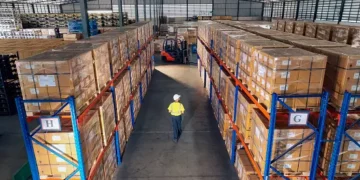Recent US sanctions targeting Myanmar’s national oil and gas firm, Myanma Oil and Gas Enterprise (MOGE), may pose challenges for Thai and Chinese customers in making payments through conventional banking systems. This could also have implications for upstream gas investments in Myanmar. The sanctions mark the first time that the US has directly targeted Myanmar’s oil and gas exports, potentially jeopardizing energy security for both Thailand and China at a time when global gas supply is tight.
The sanctions prohibit specific financial services for MOGE, including loans, transfers, accounts, insurance, investments, securities, guarantees, foreign exchange, letters of credit, and commodity options. While the directive is primarily aimed at US persons, it indirectly affects non-US entities, including Thai and Chinese companies, doing business with MOGE.
Payments in USD for transactions with MOGE may no longer be feasible through conventional banking channels, as they involve US banks, which are subject to the sanctions. This means non-US entities must be cautious not to engage in transactions that evade or violate these prohibitions.
Thailand’s state-owned oil and gas company, PTT, and China’s stance on these developments remains uncertain. Thailand has gradually shifted its gas dependence from Myanmar to LNG in recent years, while China’s reliance on Myanmar gas is relatively low, accounting for only 1% of its total gas consumption and 6% of total pipeline gas imports.
The US sanctions may also impact joint ventures and investments in the oil and gas sector in Myanmar. Foreign companies involved in joint ventures with MOGE or holding shares in MOGE subsidiaries will need to assess whether they are affected by the sanctions.
Chinese companies may resort to reporting to the government when they face foreign sanctions that hinder their normal activities with third countries. In such cases, the Chinese government can issue “blocking regulations” to prevent the application of foreign sanctions. The extent of the impact of these potential actions remains to be seen.
vWhile gas exports may not be immediately severed, Thailand and China have the capacity to find workarounds to ensure continued imports.
Stay informed with supply chain news on The Supply Chain Report. Learn more about international trade at ADAMftd.com.
#USSanctions #MyanmarEnergyCrisis #MOGE #ThailandGasSecurity #ChinaEnergyRelations #GlobalGasSupply #PTT #USForeignPolicy #SanctionsImpact #EnergyInvestments #OilGasIndustry













